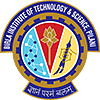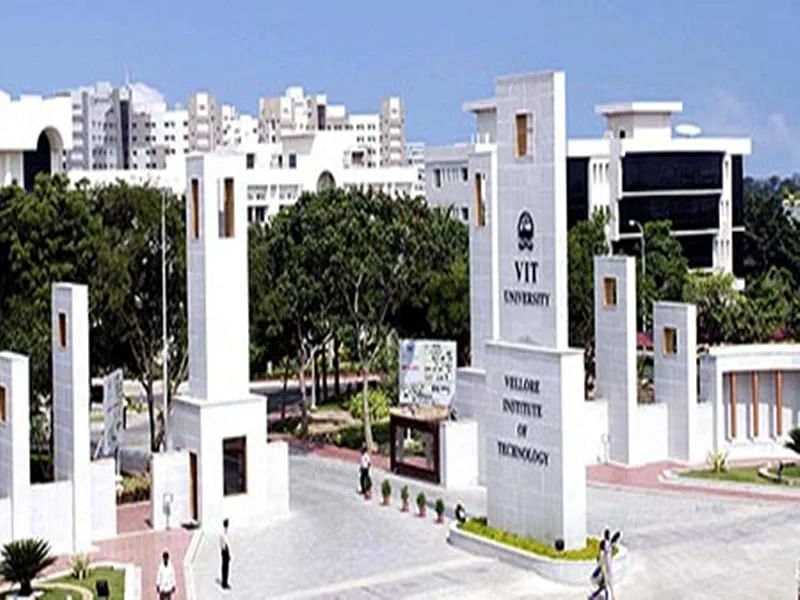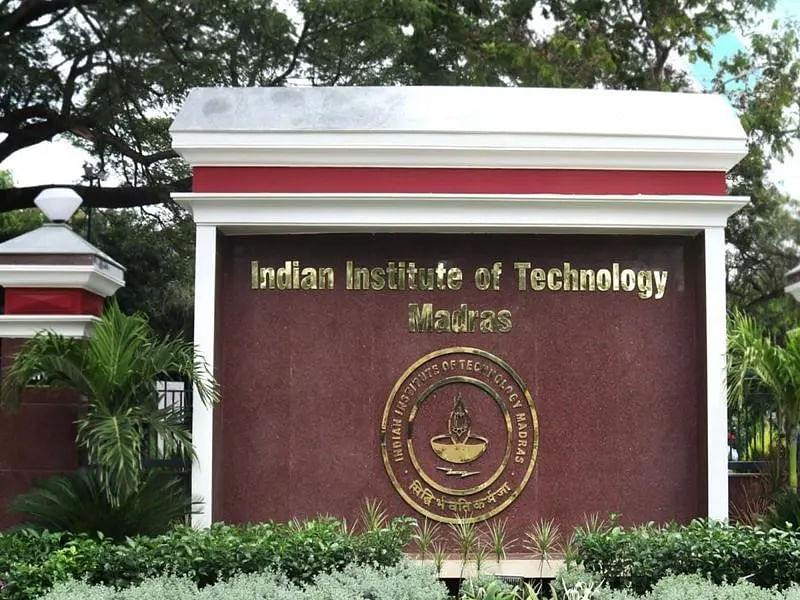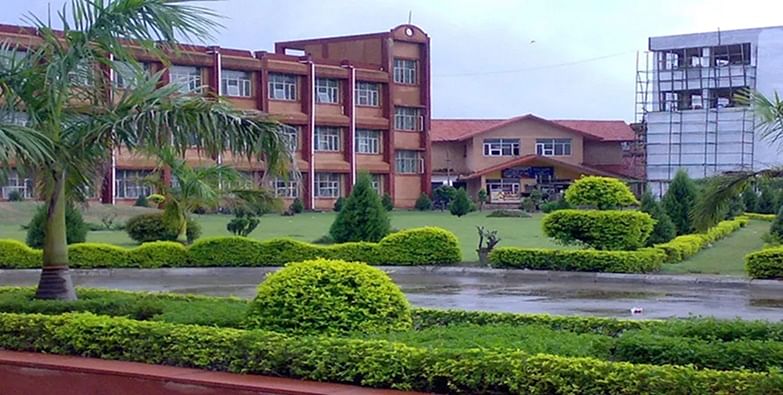Is being a Software Engineer your dream career option? Check out the complete step by step process on how to become a Software Engineer, Eligibility, Exams, Skills Required and Salary in 2024.
A Software Engineer is a professional who applies engineering principles and knowledge of programming languages to design, develop, test, and maintain software applications. The job outlook for software engineers is projected to grow 25% between the years 2022-2032 much faster than the average for any other occupation. The average software engineer's salary ranges from INR 4-20 LPA.
How To Become a Software Engineer? To become a software engineer in India, one must get a bachelor's degree in software engineering or computer science, have an in-depth knowledge of programming languages and tools, and work on projects to build and design software to create portfolios. Additionally, they could join an internship program before applying for software engineering roles.
Table of Contents
- How to Become a Software Engineer?
- What does a Software Engineer do?
- Types of Software Engineers
- What are the skills required to become a Software Engineer?
- Career Scope for Software Engineers
- Software Engineer Salary
How to Become a Software Engineer?
To become a software engineer in India, a candidate must go through several steps from pursuing an undergraduate degree to landing in their dream job. Here is a step-by-step guide on how to become a software engineer:
- Step 1: Get a Relevant Degree
- Step 2: Enhance your Programming Skills
- Step 3: Learn Data Structures and Algorithms
- Step 4: Design Real-Time Software Projects and Build a Portfolio
- Step 5: Look for Internships
- Step 6: Apply for Entry-Level Jobs
Step 1: Get a Relevant Degree
Getting a bachelor’s degree in computer science is one of the prerequisite steps for becoming a software engineer. Generally, most employers prefer hiring a candidate who has graduated with a four-year degree program from an accredited institution or university. This will include learning subjects such as software architecture, cloud computing, data visualisation, artificial intelligence, etc.
Undergraduate Software Engineering Courses
The following are some of the undergraduate degree and entrance exam details that can be pursued by candidates to kickstart their career as a software engineer:
|
Undergraduate Courses |
Entrance Exam |
|
JEE Main, JEE Advanced, OJEE, WBJEE |
|
|
CUET, LPU NEST, GITAM GAT, UGAT |
|
|
CUET, SET, IPU CET, MET, DSAT |
|
|
JEE Main, WBJEE, TNEA, CUCET |
|
|
JEE Main, VITEEE,TNEA, BITSAT, WBJEE |
Read More: Software Engineering Courses after 12th
Post Graduate Software Engineering Courses
Furthermore, students can also opt for postgraduate courses to enhance their knowledge and skill set for better career opportunities in the field of software engineering. Given below is the list of postgraduate courses students can opt for to become a software engineer:
|
Postgraduate Courses |
Entrance Exams |
|
GATE, BITSAT, OJEE, BCECE |
|
|
GATE, BITSAT, TANCET |
|
|
NIMCET, CUET PG, |
|
|
LPUNEST, IIT JAM, DUET, CET |
|
|
CUET PG, BITSAT, NEST, IIT JAM, DUET, TISS NET |
Doctorate Programs
After gaining a few years of experience in the software engineering field, students can also opt for doctoral degrees such as a Ph.D. in Data Science, a Ph.D. in computer science, a Ph.D. in Computer Science Engineering, etc. Listed below are the doctorate programs, graduates can opt for to become software engineers:
|
Doctorate Programs |
Top Colleges |
|
Jamia Millia Islamia, IIT Mumbai, Delhi University |
|
|
PhD in Data Science |
BITS Pilani Christ University, Amity University |
|
PhD Machine Learning |
IIT Madras, IIT Delhi, LPU |
|
PhD in Computer Science Engineering |
Vellore Institute of Technology, IIT Kharagpur, IIT Bangalore |
Software Engineering Certification Courses
To enhance their knowledge further, candidates can also opt for certification courses offered in online platforms in their flexible timings in a cost-effective way. Listed below are the certification courses students can opt for to become a software engineer:
- Microsoft Azure Fundamentals
- IBM DevOps and Software Engineering Professional Certificate
- AWS Certified Developer - Associate
- C Programming Certificates
- IEEE Professional Software Developer Certification
- Certified Software Engineer (CSE) Certificate.
Step 2: Enhance your Programming Skills
Though the programming languages will be covered in the bachelor’s degree, it is highly recommended to boost your practical skills by applying the concepts to work on real-time projects. Python, PHP, Ruby, C++, Java, and Javascript are some of the common programming languages which a software developer needs to be proficient in. Following are some of the most common and in-demand programming languages used by software engineers:
- Javascript - Used by software engineers to design and develop a web page or application. Javascript is mainly used to add special features to a website and to execute a specific function.
- Python - This is commonly used by software engineers for tasks such as data analysis, data visualization, web development, etc.
- Go- The Golang is used for tasks such as network services, command line utilities, web services, etc.
- PHP - It is used majorly by software engineers to create dynamic page content, control user access, encrypt important files, etc.
Step 3: Learn Data Structures and Algorithms
Aspirants need to learn data structures and algorithms in their journey to become Software Engineer as it helps them to visualize large sets of Data and interpret them using various machine learning algorithms to find required solutions or information. Some of the data structures and algorithms books are given below for student’s reference:
|
Data Structure and Algorithm Books |
Author |
Topics Covered |
|
Data Structures and Algorithms Made Easy |
Narasimha Karumachi |
Symbol Tables, Hashing, String Algorithms, Algorithms Design Techniques, Greedy Algorithms, Divide and Conquer Algorithms, Dynamic Programming, |
|
Introduction to Algorithms |
Ronald Rivest |
Algorithms as a technology, Analysing Algorithms, Designing Algorithms, Standard notations and common functions |
|
The Algorithm Design Manual |
Steve.S.Skeina |
Algorithm Techniques, Design Analysis with practical problems and solutions |
|
Grokking Algorithms |
Aditya Bhargava |
Fundamentals of Data Structure, Introduction to Algorithm, Hash tables, graph algorithms, |
Step 4: Design Real-Time Software Projects and Build a Portfolio
It is important to apply all the theoretical skills to create personal and professional projects as recruiters look for these rather than the theoretical knowledge of the subject or the scores. This experience in working and designing real-time projects can be showcased online to recruiters as an added advantage. Listed below are some of the trending software project ideas for student’s reference:
- Android Patient Tracker
- Image Encryption using AES Algorithm
- Automated payroll system with GPS tracking
- Credit Card Fraud Detection
- Travel and Tourism website using Python
- Music and Shows Finder Flutter App
- COPD Prediction System App
Step 5: Look for Internships
Once you are confident enough to apply the skills in a practical project, looking for an internship is a great way to get started with your career as a software engineer. Usually, companies offer 3-6 months of internship to students who want to work on projects and understand industry standards.
This will open an opportunity for students to work under a team and even get placed in the same organization if they show extraordinary performance.
Step 6: Apply for Entry-Level Jobs
Now, it is time to land your dream job with the right preparation. It is important to work on the right resume and cover letter and start networking with professionals through the job portal. Candidates can also apply for a job through the company portal of the organization they want to work with on their online website.
The average software engineer's entry-level salary ranges from INR 3.3-8.0 LPA. Listed below are some of the entry-level software engineer job roles:
|
Job Designation |
Job Description |
|
Web Editor |
Responsible for editing the text, videos, images, etc on the company website and social media handles |
|
Junior Developer |
Responsible for analysing the technical requirements, writing basic codes and coordinating the development team |
|
Quality Assurance Tester |
Responsible for conducting manual or automatic tests on a timely basis to check the process and procedures are being followed correctly. |
|
Junior Web Designer |
Interacts with clients on requirements such as content, graphics, and assets on the website and coordinate with the team |
Also, Check:
| B.Tech Software Engineering Job Opportunities | M.Tech Software Engineering Job Opportunities |
What does a Software Engineer do?
Software engineers are employed under different roles and their responsibilities vary based on the designation. Generally, the software engineer is responsible for
- Developing and Maintaining software applications
- Timely optimisation of software applications for speed and efficiency
- Coordinating with clients, stakeholders and engineers to incorporate any changes or advancements in the software
- Maintaining the security standards of the software application
- Introducing new features to clients and stakeholders
- Programming well-written, testable and working code
- Testing any new features added
- Troubleshooting, debugging and testing the existing software
- Maintaining software functionality and evaluating user feedback
Types of Software Engineers
The software engineering field is humongous and there are several roles based on the complexity of the software system. Hence, companies generally employ different types of engineers for different roles. Some of the common types of software engineers are:
1. Front End Engineer
Front End Engineer mostly works on the side of the application which involves the clients and users. They focus more on areas like speed, accuracy, efficiency and user experience of a software application
2. Backend Engineer
Backend Engineers are experts in building and maintaining the data that performs the action we generally see in the front end. They focus more on security, user interface, server functionality and data storage
3. Data Scientist
Data Scientist works mainly on developing and maintaining software applications to analyse and optimise data. They are responsible for providing the organization with the statistics and metrics required to make better data-driven decisions for the organisation's growth.
4. Full Stack Developer
Full stack developers are software engineers who know in and out of a software system like designing, developing and maintaining a software application. They deal with everything from creating a fully functional application to working on the user interface and features.
5. Quality Assurance Engineers
Quality Assurance Engineers are responsible for testing, analysing and reviewing the quality and user experience of an application before it reaches the end user. They develop tools to figure out errors and work on solutions to fix them
Also, Check: Steps to Become a Chemical Engineer
What are the Skills Required to Become a Software Engineer?
To excel in the software industry, a candidate must focus on various soft skills and hard skills as it involves writing, creating, designing, developing, testing and debugging software. They need to be passionate about these skills and continuous learning even after landing an entry-level job. Recruiters look for the following skills in their resumes while recruiting for software engineering roles
- Core Computer Science Knowledge
- Software Testing
- Strong Knowledge of Programming Languages
- Data Structure
- Agile and Scrum Project Management
- Attention to detail
- Object Oriented Programming
Career Scope for Software Engineers
With growing interest in new technologies every day, there is a high demand for software engineers in India and Abroad. Listed below are some of the job designations for software engineers and their details:
|
Job Designation |
Hiring Companies |
Average Salary |
|
Web Developer |
Amazon, Accenture, Wipro |
INR 7 LPA |
|
System Analyst |
Tata Consultancy Services, Cognizant, Wipro |
INR 10.2 LPA |
|
Quality Assurance Engineer |
Amazon, IBM, Oracle |
INR 6.5 LPA |
|
Database Administrator |
HCLTech, Infosys, Capegemini |
INR 8.1 LPA |
|
Front-End Developer |
Zoho, Wipro, TechMahindra |
INR 6 LPA |
Software Engineer Salary in India
The average Software Engineer's salary ranges from INR 4-20 LPA based on the domain knowledge and expertise the salary range can go up to 20 LPA. Software Engineer is one of the highest-paid professionals with the demand for the role in the industry. Given below is the Software Engineer salary details based on experience level:
|
Job Designation |
Average Entry-Level Salary |
Average Salary After 3+Years of Experience |
|
Backend Developer |
INR 6.7 LPA |
INR 25.2 LPA |
|
Test Engineer |
INR 5.1 LPA |
INR 10.5 LPA |
|
Quality Analyst |
INR 4.4 LPA |
INR 10 LPA |
|
Software Architect |
INR 12.5 LPA |
INR 25.9 LPA |
|
IT Analyst |
INR 9.2 LPA |
INR 11.5 LPA |
Read More: Software Engineer Salary in India
Pros and Cons of Becoming a Software Engineer
It is recommended to weigh the pros and cons of becoming a software engineer before choosing it as a career. Knowing the pros and cons will help you make an informed decision about your career progression. Here are some advantages and disadvantages of becoming a software engineer:
Pros of Becoming a Software Engineer
- There is always a high demand for software engineers in all domains including healthcare, Finance, Education Technology etc. to carry out multiple tasks like designing and developing software systems
- Flexibility to work from anywhere in the world and also can work on freelancing projects
- It is one of the highest-paying jobs with an increase in income based on experience and skills
Cons of Becoming a Software Engineer
- Constant learning and upgrading skills are essential for career advancement
- Choosing a career in software engineering means joining a highly competitive job market
- This also involves strict project timelines and long working hours































POST YOUR COMMENT